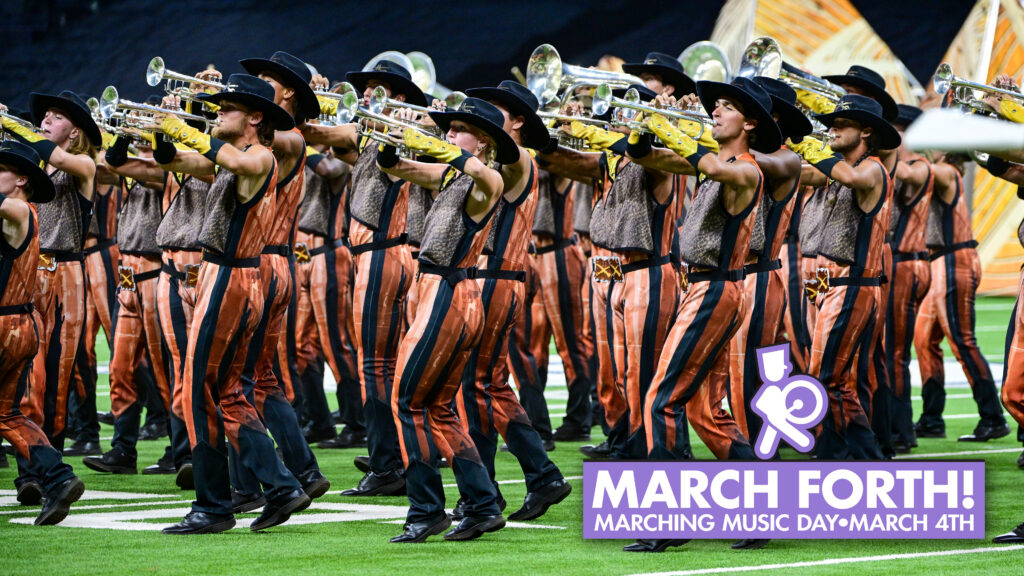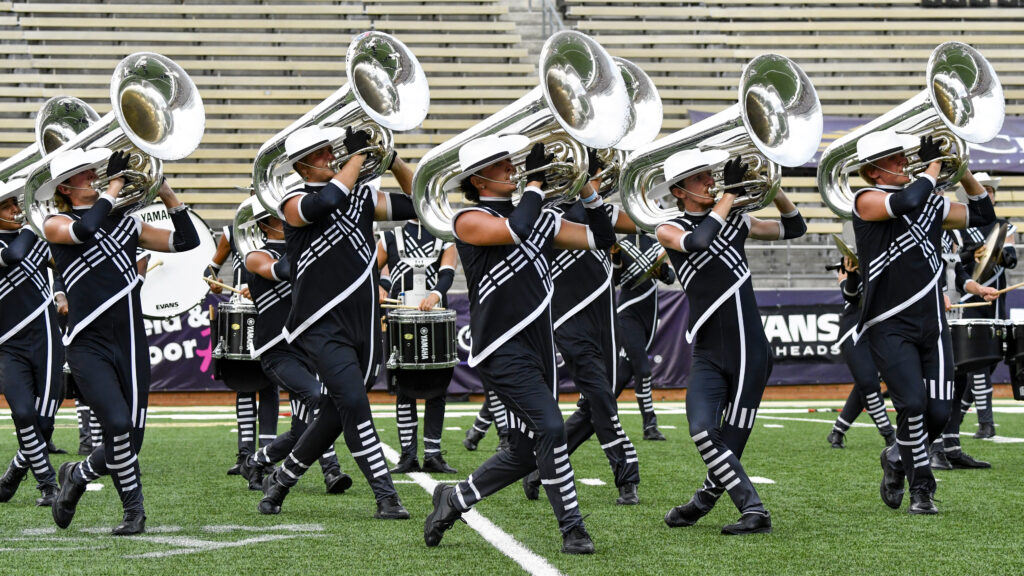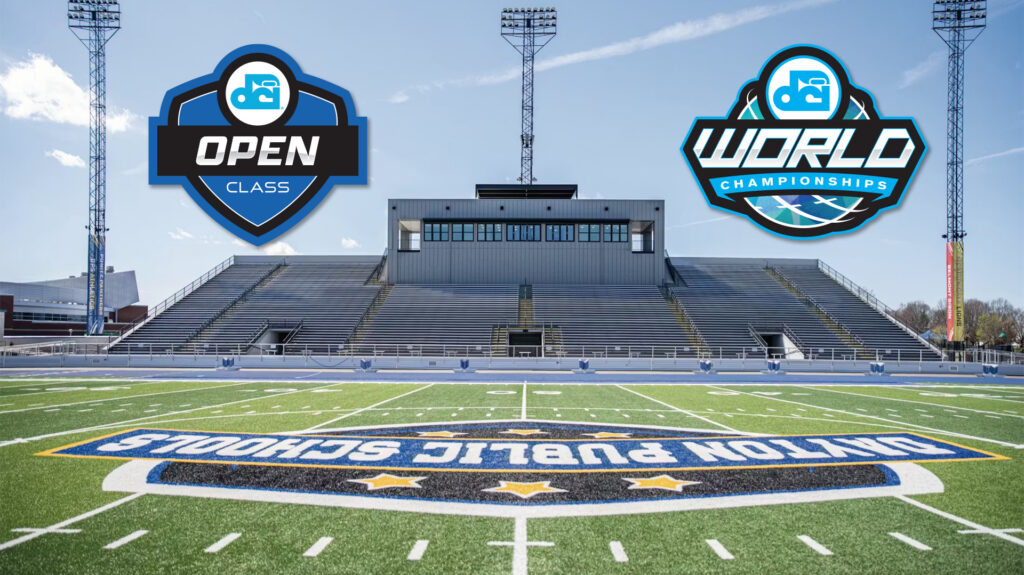- All finalist corps had been finalists in prior years.
- Blue Devils became the first corps to repeat as back-to-back Champions in the same stadium.
- Five different corps tied for the four caption awards due to a tie for High Percussion (the only time that has ever happened). For the purpose of giving the award, the tie was broken by the Percussion General Effect score.
- With Blue Stars falling out of the Finals competition, Santa Clara Vanguard became the only corps to perform in the final show of the season every year since DCI’s founding in 1972, a record the corps has never relinquished.

Earning a spot in the Finals competition for the first time since 1977, members of the Garfield Cadets opened their show quietly with Barry Manilow’s “One Voice,” the title track and opening selection from his 1979 album of the same name.
A baritone and soprano duet performed as the horn line formed a four-point star encircling the drums on the right 40-yard line. The form then moved to the 50-yard line, where the brass players and percussionists rotated contrary to the horn circle.
Color guard members wore headscarves under their bowl-shaped hats that wrapped under their necks. It’s a look said to be inspired by Mickey Kelly’s Skylarks, one of the top Winter Guard International groups of the era.

Next, the corps featured Bill Conti’s “Evening Concert.” The work came off his soundtrack for the film, “Uncle Joe Shannon,” a flick about a depressed trumpet player who found purpose in life by mentoring a disadvantaged boy. Conti came to prominence after scoring the music for “Rocky.”
In a time before front ensemble percussion sections in drum corps, Cadets designers decided to “ground” the timpani at the front of the field, which allowed one single player to contribute to the walking bass line effect of the Conti tune, freeing up the four other timpanists to march elsewhere on the field.
The corps then transitioned into Tom Scott’s “Fernando’s Fantasy,” which he wrote for Doc Severinsen’s “Brand New Thing” jazz/funk fusion album of 1977. Scott was the saxophonist bandleader of L.A. Express, a jazz/fusion ensemble formed in the 1970s, but might be better known for writing the theme to the 1970s television series “Starsky and Hutch” and for his work as a founding member of the Blues Brothers Band.

The two halves of the corps split apart and spread across the field from 10-yard line to 10-yard line as the piece wound down, then came back together as the piece segued into the standstill concert piece of “Fire Dance,” co-written by Allen Vizzutti and Jeffrey Tyzek. This work came off Woody Herman’s “Road Father” album of 1978.
Cadets soprano player Al Chez performed one of the solos in the piece. He was already performing in jazz clubs with a yet-unknown Jon Bon Jovi at the time, and later came to fame by playing trumpet in the World’s Most Dangerous Band, which was led by Paul Shaffer on David Letterman’s CBS “Late Show.”
The following production was made up of Bobby Sherwood’s “The Elks’ Parade,” written in 1942 for Sherwood’s own big band, prior to his fame as a host for a number of 1950s television shows. During the time when the Cadets organization was transitioning its style toward being more symphonic, this piece was a throwback to the musical style of the old Garfield Cadets. The corps featured a lengthy percussion solo in the middle of the tune.

The show’s closing tune featured Marvin Hamlisch’s tender ballad, “Through the Eyes of Love,” from the 1978 romantic comedy film, “Ice Castles.” The film told the story of a figure skater who learned how to love and skate again after being blinded by an accident. The piece built in intensity as the corps formed a company front. Color guard members accented the exciting conclusion by utilizing double flags, which they spun furiously in the background.
1980 marked a turning point for the Cadets organization. After returning to the “Top 12” with a 10th-place finish overall, the corps has never given up its spot as a DCI World Championship finalist ever since.
1980 Overview

Michael Boo was a member of the Cavaliers from 1975-1977. He wrote about the drum corps activity for more than 35 years while serving as a staff writer for various Drum Corps International projects. During his lifetime Boo wrote for numerous other publications including an honors-winning book on the history of figure skating. He also was an accomplished composer. Boo passed away in 2020 and was inducted into the DCI Hall of Fame posthumously in 2021.





